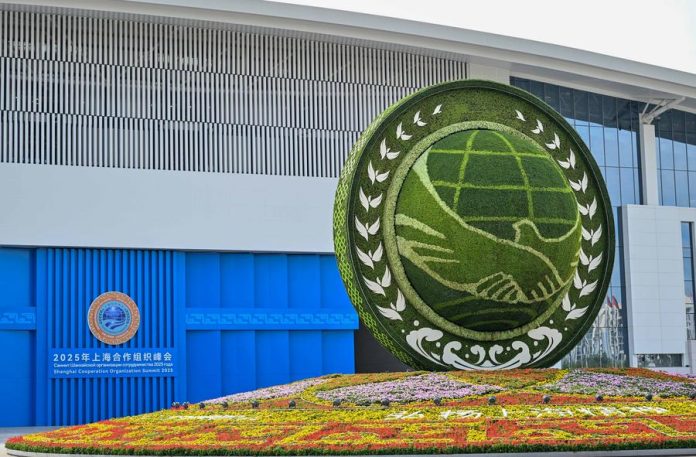ISLAMABAD, Sep 1 (Alliance News): The Shanghai Cooperation Organization (SCO) is rapidly emerging as a central pillar of international cooperation, expanding its economic influence, energy partnerships, and cultural linkages across Eurasia and beyond.
As China assumes the presidency for the fifth time, analysts view the Tianjin Summit as a turning point, showcasing the SCO’s transformation from a regional security bloc into a powerful platform for economic, technological, and cultural collaboration.
Geopolitical analyst Malik Ayub Sumbal, based in Beijing, said the SCO Summit in Tianjin is expected to be the largest in the organization’s history, reflecting its growing influence and outreach.
He noted that this is the fifth time since the body’s establishment in 2001 that China has assumed the presidency.
“The SCO is a comprehensive multilateral organization. Trade between China and SCO member states now exceeds $512 billion annually, with a growth rate of around 3%.
This economic momentum underscores China’s deepening ties with SCO nations and the strengthening of trade networks across Eurasia,” he said.
Highlighting the scale of the organization, Sumbal noted, “It is the world’s largest regional grouping, representing 42% of the global population and 65% of Eurasia’s. Economically, it contributes nearly 23% to global GDP, making it a pivotal player on the international stage.”
He underlined that the SCO’s mandate has grown well beyond security, its founding priority. “Today, cooperation includes trade, energy, technology, and cultural exchanges. This evolution positions the SCO as a driver of Eurasia’s strategic and economic weight.”
Sumbal also pointed to the vast natural resource wealth of member states, which hold an estimated 20–25% of the world’s natural gas reserves.
“This abundance consolidates the SCO’s role in global energy markets, making it a vital geopolitical bloc with influence stretching far beyond the region.”
On the Tianjin Summit, he emphasized its historic scope, noting the strong interest from the Middle East and Global South. “This demonstrates that SCO is becoming a hub for new partnerships, investment, and geopolitical engagement.”
Looking ahead, he highlighted that China’s presidency is expected to focus on innovation-driven growth. “China will likely contribute in areas of green energy and artificial intelligence, strengthening institutional resilience while expanding the economic landscape,” he said.
“By promoting sustainable energy, technology innovation, and enhanced connectivity, China and SCO members are shaping a prosperous and secure Eurasia.
The SCO’s rising profile shows that multilateral cooperation can truly drive global stability and development,” Sumbal added.






